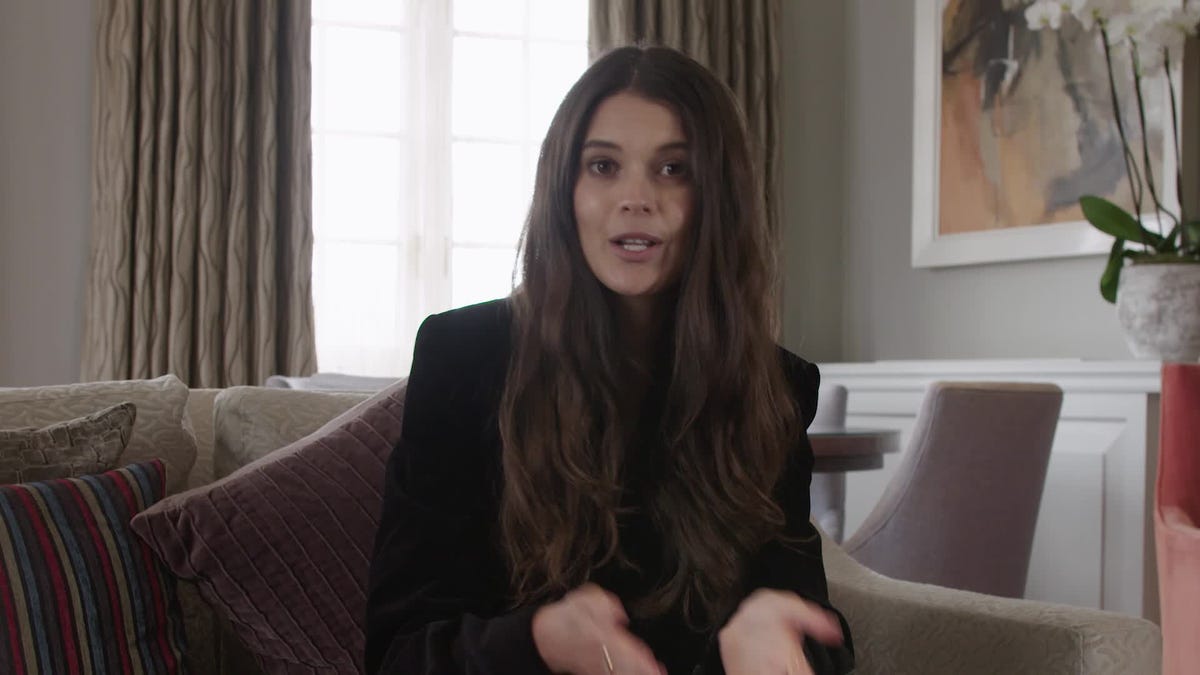With 59 per cent of UK workers experiencing stress due to their jobs, work-related stress is more commonplace than ever. It's why, Amanda Augustine, career advice expert at TopCV, says it's important to recognise the signs and be aware of stresses going on in the workplace before it leads to burn out.
'While it may not be realistic to "flip a switch" and forget about work the moment you leave the office, it's a problem if your mind is occupied by it all the time,' she tells Cosmopolitan UK. The first step to spotting work related stresses is to acknowledge certain behaviours, and to recognise if they're unhealthy.
How to spot work stress
When did you last take a lunch break, let alone a holiday?
If you find yourself forgetting to eat lunch, or desperately cramming down a packed lunch at your desk while the elusive 'lunch hour' alludes you once again, this might be the sign of more than just indigestion. Numerous studies have found that taking time off - whether that's a holiday or a walk around the block - can decrease stress, increase productivity, improve health and focus, but when you're at the height of stress, it can feel impossible to do.
Are you sleep deprived?
Despite feeling exhausted at the end of the working day, when it’s time to go to bed, you find that your mind is still racing with thoughts of work. Sound familiar? If you regularly feel wired when you go to bed and have trouble falling asleep due to anxieties about the day ahead, you need to do something about it.
Do you get the Sunday dread?
We're all guilty of hating on Monday morning, but if you think your Sunday night mood might be down to work stress, you need to start taking it seriously.
Are you thinking about work constantly?
As Amanda says, "whether it’s Saturday night and you’re still dwelling over the work email you sent on Friday, or you’re out with friends and family and work is your go-to topic of conversation", if your job feels like it's taking over your life, it isn't healthy.
What to do about work stress
Here, Amanda shares her 7 tips for handling work related stress.
1. Prioritise your workload
Set yourself achievable goals and create priority lists of things that need to get done, things you'd like to get done, and tasks that aren't your first concern right now. 'Create a comprehensive to-do list with apps like Wunderlist or Todoist and prioritise your work,' Amanda tells us. 'Be strategic in identifying the time of day when you’re most productive and use it to tackle a project or task that requires the most thought.'
2. Delegate the rubber balls
And with that priority list, be prepared to drop some of the 'To-dos', or pass them onto other people - you're likely stressing out because you've taken too much on, and there aren't enough hours in the day to do it. 'Consider each priority at work to be a ball that you’re juggling; some are made of glass, and others are rubber. When you’re juggling too many priorities, you’ll end up dropping a few along the way. Identify which ‘balls’ will bounce back if they are dropped, and see if you can have some of these delegated to other members of your team.'
3. Speak with your manager
Work-related stress costs UK businesses billions of dollars each year, due to loss of productivity. Avoid going down that route by being honest with your manager about how your feeling, and seeing what they can do to help. As Amanda advises, 'Have an open conversation with your manager to explain the situations that are causing you the most stress. The goal is not to list out complaints, but to work together to devise a plan that will help you manage these stressors more effectively so you can perform at your best.'
4. Organise your workspace
'Mess breeds stress,' the career expert continues. 'There’s no reason to add unnecessary stress to your workload by being disorganised. Take a cue from Marie Kondo and declutter your workspace. Then, add a plant to your area; incorporating a little greenery into your work environment has been proven to reduce stress, lower blood pressure and increase positive feelings.
5. Prioritise self-care
While it can feel like work is taking over your life, make an extra effort to do things that you enjoy and that make you feel good. 'Do some stress-busting activities that will boost your endorphins such as breathing exercises, physical activity, or meditation. Ditch your phone or put it on airplane mode, or download an app like the Stress & Anxiety Companion, or Headspace, that is designed to help you manage stress while on the go.'
6. Set work-life boundaries
We know this can be easier said than done, but feeling like we're constantly contactable and available to reply to emails 24/7 can increase work anxiety no end. 'Technology was supposed to liberate us from much of the daily slog, but it often makes things worse because now we’re always "switched on",' Amandra agrees. 'For many professionals, this increasingly blurs the line between work and home life, so setting clear boundaries is a must. Block off chunks of time in your calendar for hobbies, family etc. and communicate to your team when you will be completely "off grid".'
7. Consider a change
If you're reading through this list and genuinely don't think any of the suggestions might help your chronic work stress, it may be time to make a change. 'Take some time to sort out your next career move, and then update your CV with this goal in mind,' the career advice expert at TopCV says.
'The average UK employee can expect to spend a total of 82,068 hours working over their lifetime, the equivalent of 3,420 nonstop days on the bounce. Over that period, we’ll likely get just four per cent more time with our partner or family than we do with our work colleagues. These are the hard facts of a working life, but they illustrate the need to take great care in our career choices so that we are happy with the direction in which those 82,068 precious hours are heading.'

Dusty Baxter-Wright is an award-winning journalist and the Entertainment and Lifestyle Director at Cosmopolitan, having previously worked at Sugarscape. She was named one of PPA’s 30 Under 30 for her work covering pop culture, careers, interiors and travel, and oversees the site’s Entertainment and Lifestyle strategy across print, digital and video. As a journalist for the best part of a decade, she has interviewed everyone from Louis Theroux and Channing Tatum to Margot Robbie and Ncuti Gatwa, while she has also spoken on Times Radio and BBC Radio. You can find her on Twitter and Instagram here.













